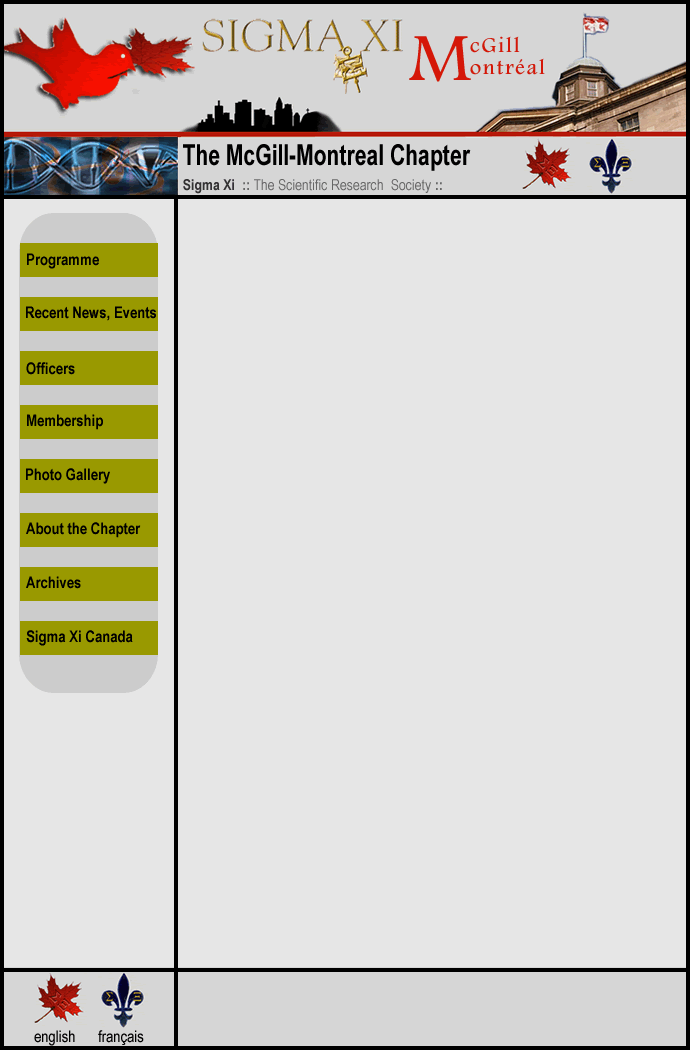updated: 7 November 2008
WebMaster: Zahid S. Mahimwalla
November 2008
Prof. Jean Paris
The Forest Biorefinery, an Opportunity for the Canadian
Pulp & Paper Industry, not a Panacea
Monday, 24th November 2008
Public Lecture: 6:00 P.M.
McGill University
Otto Maass Chemistry Building
Room TBA
_____________________________
Council Meeting: 4:30 P.M.
Ruttan Room
_____________________________
Member Reception: 5:30 P.M.
Ruthan Room
October 2008
Prof. Patrick Ayotte
Life and death of a snowflake: Molecular beam studies of elementary heterogeneous atmospheric chemistry processes
Monday, 27th October 2008
Public Lecture: 6:00 P.M.
McGill University
Otto Maass Chemistry Building
Room 328
_____________________________
Council Meeting: 4:30 P.M.
Ruttan Room
_____________________________
Member Reception: 5:30 P.M.
Ruthan Room
September 2008
Dr. Steven J Melnick PhD.,M.D.
Pharmaceutical Medicine in Crisis! A search for harmony between Western and traditional medicine systems
Monday, 22nd September 2008
Public Lecture: 6:00 P.M.
McGill University
Otto Maass Chemistry Building
Room 10
_____________________________
Council Meeting: 4:30 P.M.
Ruttan Room
_____________________________
Member Reception: 5:30 P.M.
Ruthan Room
The McGill-Montreal Sigma Xi Chapter :: site map & links
home :: programme :: news events :: officers :: members :: photos :: about chapter :: archives :: Sigma Xi Canada
Sigma Xi international :: American Scientist magazine

